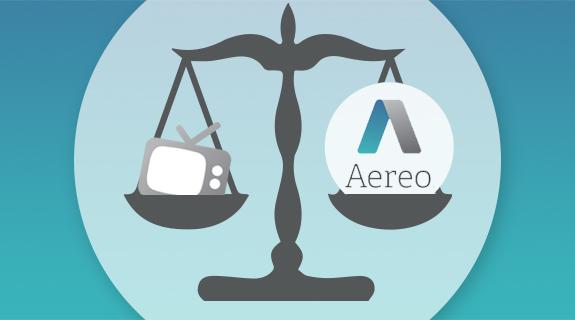It’s lights out for Aereo if the local television streaming service loses at the Supreme Court, IAC Chairman Barry Diller said in an interview Wednesday.
“If we lose, we’re finished,” Diller told Bloomberg Television’s “Market Makers” program. “It’s very possible there’s some salvage. But Aereo probably, as I say probably just because I can’t—I can’t see any path forward. It probably would not be able to continue in business.”
Diller’s comments come ahead of a highly-anticipated showdown at the U.S. Supreme Court later this month, where the IAC-backed startup will square off against the Big Four broadcasters suing to shut it down AND the Obama Administration, which has sided with the broadcasters.
Each of the Big Four networks have sued to put a stop to Aereo, which rents out a small antenna to users that transmits broadcast television to multiple devices such as smartphones.
Ther broadcasters say the company is illegally retransmitting television; Aereo says it is simply renting remote antennas.
The specific question before the High Court is “whether a company ‘publicly performs’ a copyrighted television program when it retransmits a broadcast of that program to thousands of paid subscribers over the Internet.”
Diller said that Aereo could “probably” compete with the cable companies and pay retransmission consent dollars if the Supreme Court ruled against them, but the “value proposition would go out of the game because Aereo is a low-cost method of receiving over-the-air broadcasting. That’s the platform.”
On the other hand, if the Justices allow Aereo to survive, Diller said the company would continue to expand into the top 30-40 markets.
Aereo is already available in Austin, Houston, San Antonio, Dallas-Fort Worth, Boston, Miami, Detroit, Baltimore, and Cincinnati. The company has already halted signups in New York City and Atlanta due to “high demand.” Legal setbacks in Utah meant that customers in Denver and Salt Lake City lost access to Aereo’s service.
Diller said he didn’t believe that the broadcasters would become cable channels if they lost their court fight.
“I think it’s very unlikely that [broadcasters] would be able to take that [free] broadcasting away from that distribution of that signal, of that programming and put it in a solely paid system,” said Diller.
The Supreme Court has set oral arguments in the case, with a decision expected sometime in June.
Brief Take: Diller and IAC believe in the legality of Aereo, but recognize that there is no sense in keeping up the fight if they lose in June. His comments indicate that the Supreme Court case may very well be the final chapter in the ongoing saga that has been Aereo Versus the Broadcasters.
Tags:













































__twocolumncontent.jpg)











